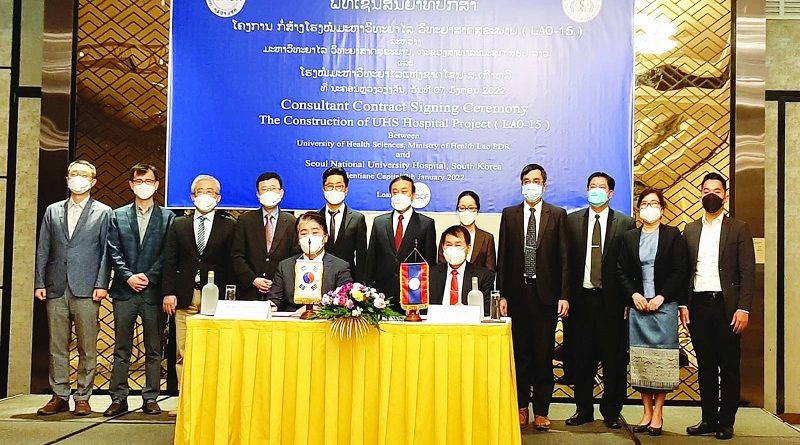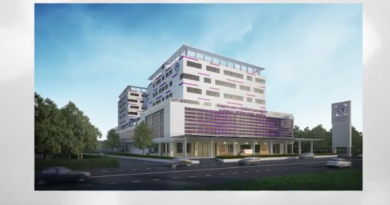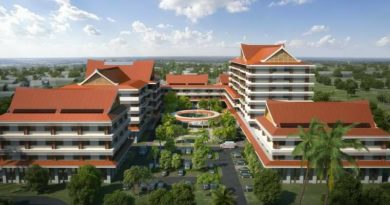S. Korea’s EDCF Funds The Construction Of UHS Hospital In Laos With Consultancy Support From SNUH
Source: Vientiane Times
Medical services in Laos are set to improve with the construction of a hospital attached to the University of Health Sciences (UHS) in Vientiane.
The new hospital will enhance Laos’ health and medical environment as well as provide professional training and health research.
Seoul National University Hospital (SNUH) in the Republic of Korea has been selected as the main consultant to advise the Ministry of Health on the construction of the hospital, which will be built with funding from Korea’s Economic Development and Cooperation Fund (EDCF) operated by the Korea Eximbank.
A signing ceremony and inception report briefing on consulting services for the construction of the UHS Hospital took place in Vientiane on Friday.
The event was attended by Laos’ Minister of Health, Dr Bounfeng Phoummalaysith; EDCF Chief Representative in Laos, Mr Lee Dong-Geon; Acting President of UHS, Dr Bounthome Samountry; and SNUH’s Professor of the Orthopedic Surgery Department, Dr Lee Dongyeon.
Following the construction of the hospital, SNUH will provide medical services for 24 departments and specialised clinics, including a simulation centre and other facilities. Top hospitals in Korea formed a consortium to take part in the bidding for the construction of the hospital.
The consortium, in which SNUH is taking the role of Project Manager, consists of the Korea Health Industry Development Institute and Korea Consulting & Audit (KCA).
Several construction consulting firms were selected by the Lao government in September and negotiations on the contract were completed in November last year.
SNUH will train Lao staff to run the hospital by inviting them to Korea to be trained at SNUH over the course of four years.
After the UHS Hospital opens, professional medical staff will be dispatched for three years from Korea to Laos to share their experiences in medical technology.
The hospital will also serve as a training ground to foster professional medical personnel.
Professor Lee Dongyeon said “We have been steadily conducting programmes, including the Lee Jong-Wook Seoul Project, which we began in 2010, to train and educate faculty members at the University of Health Sciences in medical knowledge and skills.”
“Consulting services for establishing the UHS Hospital are significant because it involves building the first health sciences university hospital in Laos,” he added.
“EDCF will finance this project (known as EDCF Loan No. LAO-15) through a concessional loan.”
“This project not only aims to build a new hospital, but also to improve accessibility to modern medical services and to systematically train medical personnel in advanced medical practice,” Mr Lee Dong-Geon said.
“We, EDCF, sincerely hope that the SNUH Consortium which has been selected as the main consultant on this project will be able to achieve remarkable results at the end of the project through close and active cooperation with the Ministry of Health as well as the University of Health Sciences.”
“The successful outcome of this project will contribute to the significant improvement of the health sector in Laos,” he added.
The hospital will be built at the UHS campus in Dongphosy village, Xaysettha district, with completion scheduled for the end of 2024.
The facility will comprise a medical building, medical equipment, and modern educational equipment.
The loan agreement for the project was signed between the Lao government and the Korea Eximbank in December 2018.
EDCF will loan about US$102.6 million, with about US$21 million to be jointly funded by the Lao government. The total project cost is US$123.6 million.
Plans for the new hospital indicate that two, three and four-story buildings will be built alongside existing facilities as well as a 400-bed hospital.






